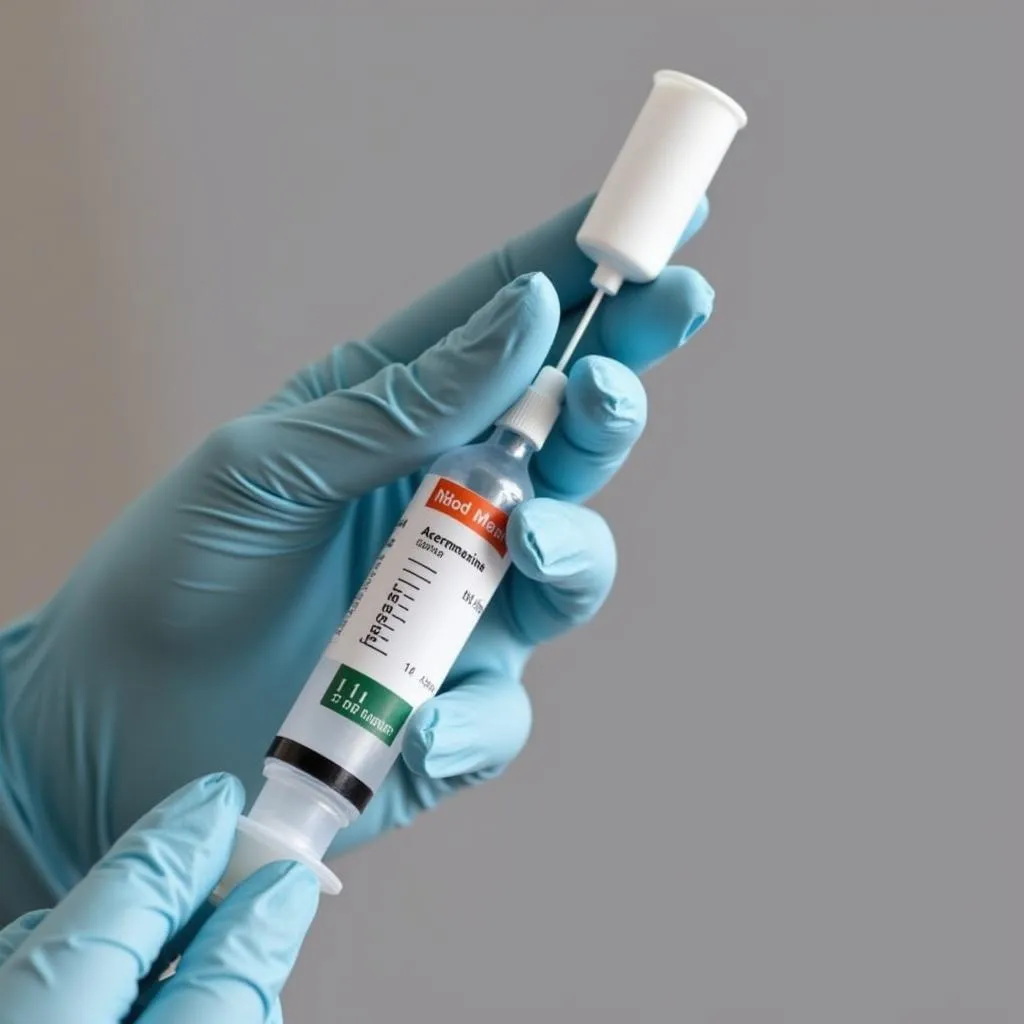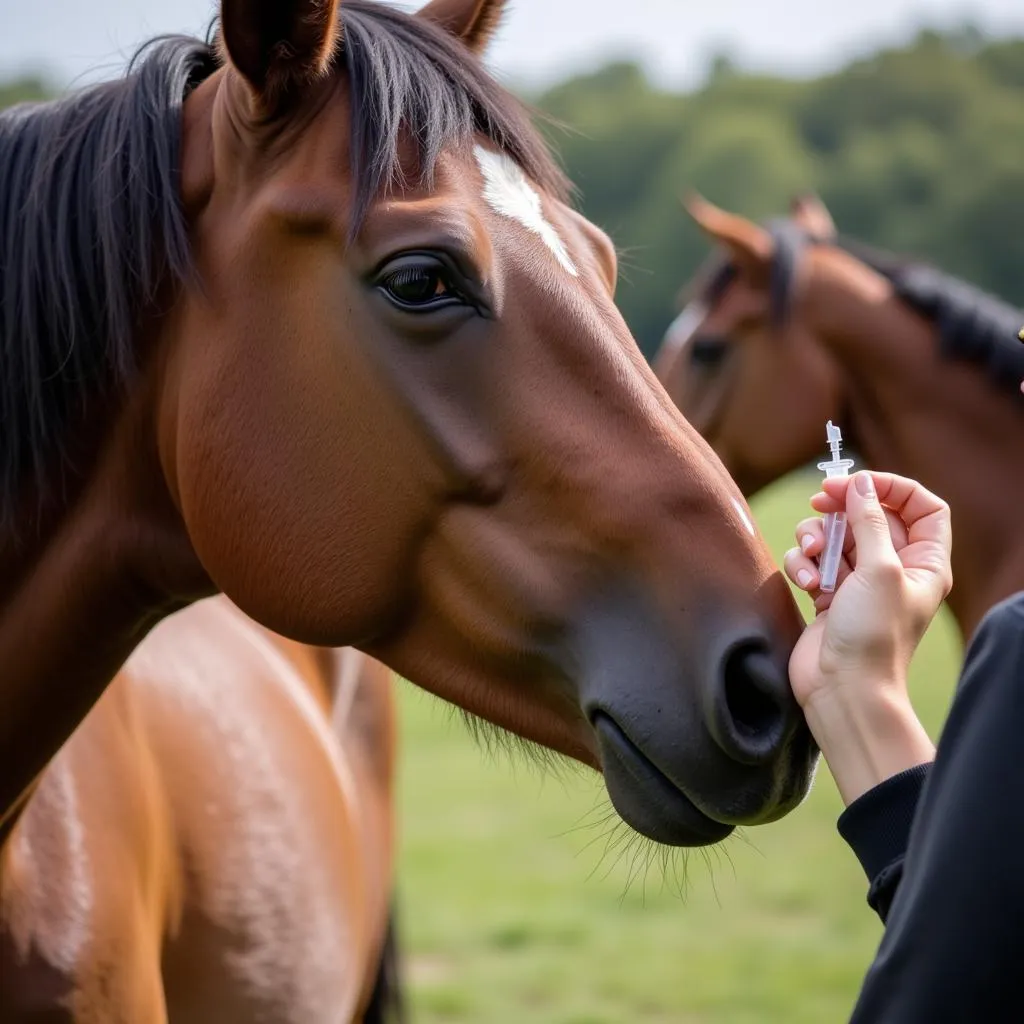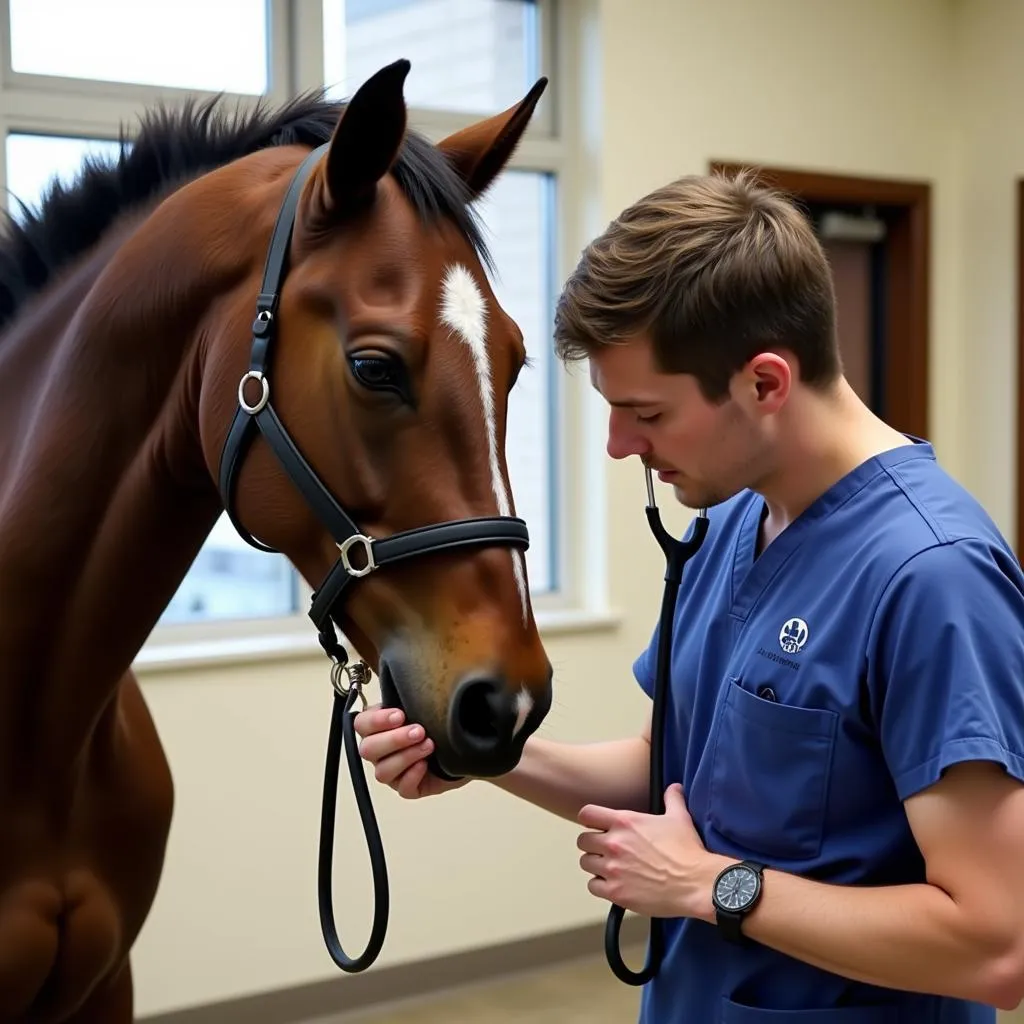Acepromazine, often referred to as “Ace”, is a commonly used sedative for horses. It’s important to remember that while Acepromazine is available over-the-counter, you should never administer it without direct guidance from your veterinarian. Determining the correct dosage for your horse is crucial for their safety and well-being.
This article will discuss the factors your veterinarian considers when calculating the appropriate dosage of Acepromazine for your horse.
Factors Influencing Acepromazine Dosage in Horses
Several factors influence the appropriate dosage of Acepromazine for your horse. These include:
- Weight: A horse’s weight is the primary factor determining the amount of medication they need.
- Age: Senior horses or those with underlying health conditions might require dosage adjustments.
- Temperament: A highly anxious horse may require a slightly different dose than a calmer horse.
- Intended effect: The desired level of sedation, whether for a short trip or a minor medical procedure, will affect the dosage.
Risks of Incorrect Acepromazine Dosage
Administering the incorrect dosage of Acepromazine can lead to several risks, including:
- Oversedation: An overdose can cause excessive sedation, making the horse unsteady on their feet and increasing the risk of injury.
- Paradoxical reaction: In some cases, Acepromazine can have the opposite effect, leading to excitement and agitation instead of sedation.
- Cardiovascular effects: Acepromazine can lower blood pressure, which can be dangerous in horses with pre-existing heart conditions.
 Veterinarian preparing oral syringe with Acepromazine
Veterinarian preparing oral syringe with Acepromazine
Why You Should Always Consult Your Veterinarian
It is crucial to consult your veterinarian before administering any medication to your horse, including Acepromazine. Your vet will:
- Perform a physical exam: This helps determine your horse’s overall health and identify any potential risks associated with Acepromazine administration.
- Obtain a medical history: This information can alert the veterinarian to any previous adverse reactions or conditions that might affect dosage.
- Calculate the correct dosage: Based on your horse’s individual needs, your veterinarian will determine the safest and most effective dosage of Acepromazine.
- Provide administration instructions: Your vet will demonstrate the proper way to administer the medication orally, ensuring accurate dosage and minimizing stress for your horse.
 Horse calmly receiving oral medication
Horse calmly receiving oral medication
Safe Practices When Using Acepromazine
When using Acepromazine under the guidance of your veterinarian, always prioritize safety with these practices:
- Clear communication: Provide your veterinarian with all relevant information about your horse’s health and the reason for needing sedation.
- Follow instructions precisely: Administer the exact dosage prescribed by your veterinarian at the specified time.
- Monitor your horse closely: Observe your horse for any adverse reactions or unusual behavior after administering Acepromazine. Contact your veterinarian immediately if you notice any concerns.
Acepromazine is Not a Pain Reliever
While Acepromazine can provide sedation, it’s important to understand that it does not offer any pain relief. If your horse requires pain management, your veterinarian will prescribe appropriate analgesics in addition to or instead of Acepromazine.
 Veterinarian performing a checkup on a horse
Veterinarian performing a checkup on a horse
Conclusion
Determining the correct dosage of Acepromazine for your horse is crucial for their safety and requires the expertise of your veterinarian. By working closely with your vet and following their guidance, you can help ensure the well-being of your horse while utilizing Acepromazine effectively for specific situations.
Remember, never guess when it comes to your horse’s health. Contact Justus Horses USA at 0772127271, email us at [email protected], or visit us at QGM2+WX2, Vị Trung, Vị Thuỷ, Hậu Giang, Vietnam, with any questions or to schedule an appointment. Our dedicated team is available 24/7 to assist you.